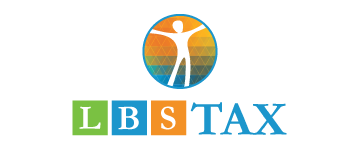A critical component of sound financial management that should be addressed all year long is effective tax preparation. It’s a bad idea to wait until April to figure out your tax liability. It’s crucial to be aware of the elements that can suddenly increase your taxes if you want to make sure you keep more money in your pocket. Today, we’ll look at five important elements that may result in a rise in the amount of tax you owe at year’s end. You may improve your financial planning and lessen unexpected tax expenses by being proactive and taking these things into account.
Factor #1 – Cashing in Your Retirement Plan:
Significant tax penalties may apply if you remove money from your retirement plan, such as a 401(k), too soon. You will be responsible for paying taxes on the withdrawn amount if you decide to take the proceeds in cash rather than transferring them to an IRA. Additionally, a 10% fine will be imposed unless you are over 59 1/2. You can protect a significant chunk of your arduous-earned retirement savings by avoiding these mistakes.
Factor #2 – Working as a Freelancer:
While working as an independent contractor or for yourself provides independence and flexibility, it can also have intricate tax ramifications. The self-employment tax, which covers both the employer and employee portions of Medicare and Social Security taxes, is levied on freelancers and other self-employed people. Unpleasant surprises during tax season can result from failing to anticipate this tax load and setting aside funds accordingly. This happened to one of my nieces. While working a second job to pay off some debt, she unexpectedly ended up owing the IRS on her freelance gig. Factor #3 – Failing to Take Your Required Minimum Distribution (RMD):
Individuals must start taking minimum distributions from retirement funds, such as IRAs and employer plans after they turn 70. Tax penalties may be severe if this condition is not met. Maintaining knowledge of RMD regulations and ensuring compliance are essential to preventing unneeded financial setbacks.
Factor #4 – Skipping Your IRA Contribution:
Skipping your annual IRA contribution could have unanticipated effects on your tax bill. Consider your potential influence on your overall tax liability before deciding not to make contributions to your IRA. You can make a more informed decision by doing the math and consulting a specialist. We recommend that clients contribute a little each month, the same way an employer deducts it from an employee’s paycheck. That little deduction each month does hurt as much as trying to come up with a larger payment.
Factor #5 – Paying Off Your Mortgage:
While feeling financially free after paying off your mortgage may be satisfying, doing so may have tax implications. If you itemize your deductions, mortgage interest is often deductible from your taxes. Your tax obligation can go up if you lose this deduction. This is a crucial factor to keep in mind, even though it shouldn’t be the only justification for keeping a mortgage.
Also, taking the money out of your retirement to pay off your mortgage is not something Dave Ramsey told you to do and is a really bad option. We hear that at least once a year. Call him and ask. It is a big no-no.
Seek Professional Assistance for Tax Debt Cases:
If you find yourself in a difficult tax situation, such as owing back taxes, it is essential to obtain professional guidance. Our company specializes in assisting people in their negotiations with the IRS, and we may be able to settle tax debts for a portion of what is owed. Contact us at LBS Tax Services.
Year-round tax planning is essential to minimize surprises and optimize your financial well-being. By being aware of factors that can unexpectedly raise your taxes, such as early retirement plan withdrawals, self-employment tax obligations, missed required minimum distributions, skipped IRA contributions, and the impact of mortgage payoff, you can take proactive steps to manage your tax liability effectively.
Remember, hiring a tax resolution specialist for IRS problems is crucial for protecting your hard-earned income and assets. Let us help you take back control of your financial life by reaching out to our firm today. Contact LBS Tax today!
